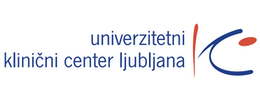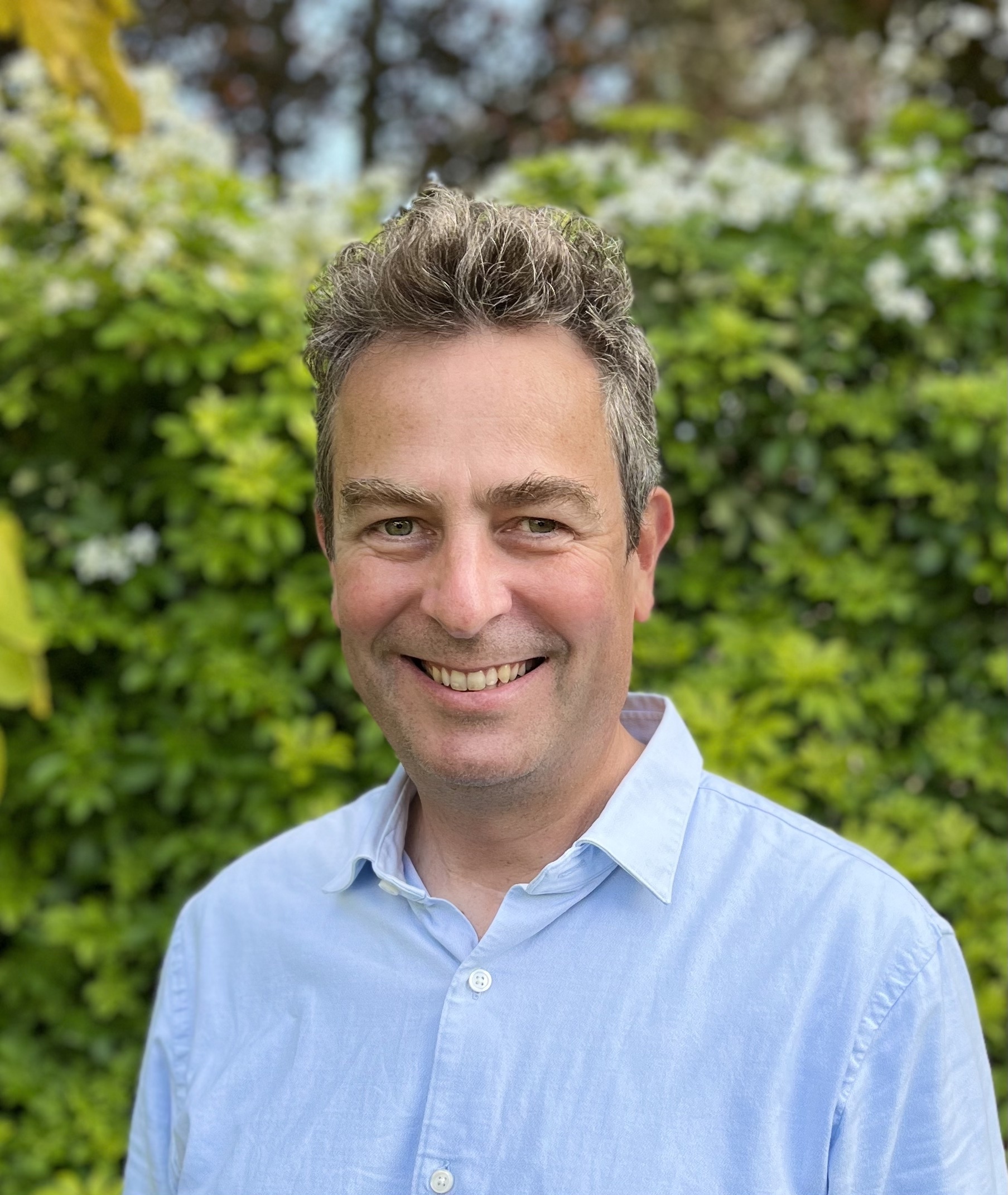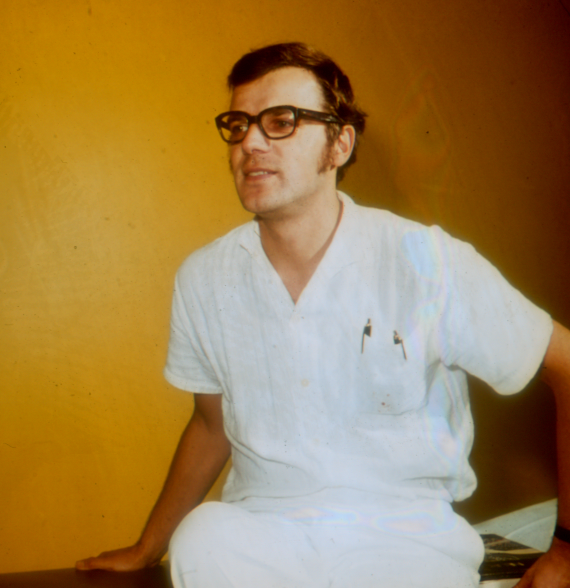

Dr Janez Faganel Memorial Lecture
Martin Turner: Biomarker development in ALS: from muscle to brain to blood

The ability to objectively measure disease activity in amyotrophic lateral sclerosis (ALS) has been one of the greatest barriers to therapeutic development. A focus on biomarker research for more than 20 years has coincided with the acceptance of a fundamental brain pathology associated with ALS, which has clinical, histopathological and genetic overlap with frontotemporal dementia (FTD). The focus on downstream markers of muscle denervation and has widened to include consideration of cortical hyperexcitability as a hallmark through transcranial magnetic stimulation and the application of advanced neuroimaging tools to study cortical function as well as structure. These have been increasingly applied to asymptomatic carriers of ALS-causing monogenetic variants, unveiling the clinical syndrome as the common endpoint of a long pathological process with many different starting points and possibly neurodevelopmental underpinnings. Most recently, blood neurofilament level has matured as the leading prognostic marker in ALS, whose lowering in response to drugs has great potential to be used as an early confidence-building marker of likely human clinical benefit.
Martin Turner is Professor of Clinical Neurology & Neuroscience within Oxford University’s Nuffield Department of Clinical Neurosciences, and Honorary Consultant Neurologist to the John Radcliffe Hospital in Oxford. He trained in pre-clinical Medical Sciences at the University of Cambridge (MA 1992) and in Clinical Medicine and Surgery at St. George’s Hospital Medical School, London (MBBS 1995). His PhD (2005) was under the supervision of Professor Nigel Leigh at King’s College London and David Brooks at Hammersmith Hospital, pioneering the use of ligand PET to reveal previously under-recognised brain pathology in sporadic and familial cases of ALS. Working in partnership with ALS patients for 20 years, his focus is the development of biomarkers from neuroimaging and biofluid assays, to accelerate therapy discovery. He conceived and is now co-leading the NIHR-funded ‘EXPErimental medicine Route To Success in ALS’ (EXPERTS-ALS), which is a revolutionary biomarker response platform that will screen repurposed drugs for their ability to lower neurofilament levels in small patient groups over short time periods.
He has been the recipient of the Medical Research Council’s Clinician Scientist Fellowship (2008-13) and Senior Clinical Fellowship (2013-18). He was awarded the Royal College of Physicians’ Graham Bull Prize for Clinical Science (2015) and delivered their 378th annual Goulstonian Lecture. He served as Chair of the Research Committee of the Association of British Neurologists from 2016-22, greatly expanding their annual PhD Fellowship programme to help ensure the next generation of clinician scientists. He has more than 300 peer-reviewed publications and is the co-author of several books, including the Oxford Textbook of Neuromuscular Disorders (OUP), Landmark Papers in Neurology (OUP), Fast Facts: Diagnosing ALS (Karger) and The Beginner’s Guide to the Brain (Oneworld). He recently launched a monthly Practical Neurology Case Report discussion podcast.
Lecture will take place on Friday, 29 September 2023: 11:10 - 12:00 CET
Dr Janez Faganel Memorial Lectures

In 1968, Doctor Janez Faganel (1943–1984) joined Prof. Milan R. Dimitrijević in the Clinical Neurophysiology Laboratory. In addition to research work in the field of neurophysiology, he also engaged in clinical work, and in 1975 he founded the Center for Neuromuscular Diseases. With Prof. Dimitrijević, he also researched the mechanisms of motor control and spasticity. He died of complications from hemophilia. He was married and a father of four children.
Since 1985, the Institute of Clinical Neurophysiology has been organizing an autumn neurophysiology symposium every year, and as part of the symposium, a lecture in memory of Dr. Janez Faganel. This year's lecture is already the 39th in a row.
1985
Brain Injury Satellite Symposium – BISS '85
P. D. Wall (London, United Kingdom):
Pain mechanisms
1986
Diagnostics in Neuromuscular Disorders
K.-G. Henriksson (Linkøping, Sweden):
Muscle pain in neuromuscular disorders and primary fibromyalgia
1987
2nd Yugoslav Symposium on Neurourology and Urodynamics
J. K. Light (Houston, USA):
Neurogenic bladder in patients with spinal cord injury
1988
Symposium on Quantitative Electromyography
E. Stålberg (Uppsala, Sweden):
Electromyography – reflection of motor unit's physiology in health and disease
1989
Symposium on Sensory Encephalography
A. M. Halliday (London, Great Britain):
The widening role of evoked potentials in clinical practice
1990
Symposium on Assessment of the Upper Motor Neuron Functions
A. M. Sherwood (Houston, USA):
Brain motor control assessment
1991
Symposium on Neurophysiological Monitoring
V. Deletis (New York, USA):
Intraoperative monitoring of evoked potentials – current status and perspective
1992
International Symposium on Evaluation and Treatment of Severe Head Injury
E. Rumpl (Klagenfurt, Austria)*:
Neurophysiological evaluation of severe head injury patients
1993
Symposium on Neurophysiological Evaluation of the Visual System
H. Ikeda (London, Great Britain):
Mammalian retinal neurotransmitters – as seen through the eyes of a neurophysiologist
1994
Symposium on Extrapyramidal Disorders
J. Jankovic (Houston, USA):
New horizons in dystonia
1995
Symposium on Multiple Sclerosis
W. I. McDonald (London, Great Britain):
The clinical and pathological dynamics of multiple sclerosis
1996
Symposium on Update in Neurogenetics
L. P. Rowland (New York, USA):
Molecular genetics and clinical neurology
1997
Symposium on Cognitive Neuroscience
G. Barrett (Farnborough, Great Britain):
Cognitive neurophysiology, a tool for studying the breakdown of mental processes
1998
9th European Congress of Clinical Neurophysiology
J. Trontelj (Ljubljana, Slovenia):
SFEMG – Sensitive optics in space and time
1999
Symposium on Electrophysiology of Hearing
A. Starr (Irvine, USA):
Mysteries of the cochlea
2000
Symposium on Movement Disorders, “The Alpine Basal Ganglia Club”
A. J. Lees (London, Great Britain):
The relevance of pleasure/reward dopamine circuits to Parkinson’s disease
2001
EC-IFCN Ljubljana 2001 Regional EMG Refresher Course
E. Stålberg (Uppsala, Sweden):
The role of conventional and advanced electro¬myography in clinical neurology
2002
International Symposium on Clinical and Electrophysiologic Diagnostics of Epilepsy
P. Chauvel (Marseille, France):
High-resolution electroencephalography in clinical neurophysiology: applications to epilepsy and evoked potentials
2003
Symposium on Intraoperative Neurophysiology
V. E. Amassian (New York, USA):
Essentials of neurophysiology of the motor system
2004
Symposium on Sleep Research
M. Billiard (Montpellier, France):
Excessive daytime sleepiness: clinical impression versus final diagnosis
2005
37th International Danube Symposium for Neurological Sciences and Continuing Education
T. Prevec (Ljubljana, Slovenia):
Sharp or kind stimulus to activate the sensory system?
2006
International Symposium on Spinal Cord Motor Control “From Denervated Muscles to Neurocontrol of Locomotion”
G. Vrbová (London, Great Britain):
Some observations on the biology of the neuromuscular system and their possible usefulness for recovery of impaired function
2007
XVIth International SFEMG and QEMG Course and IXth Quantitative EMG Conference
J. Kimura (Kyoto, Japan):
The use of late responses as a quanti¬tative measure of nerve conduction and motor neuron excitability
2008
Symposium on Amyotrophic Lateral Sclerosis
P. N. Leigh (London, Great Britain):
ALS: Advances in the laboratory and in the clinic
2009
Symposium on Clinical Neurophysiology of Pain
G. Cruccu (Rome, Italy):
Clinical neurophysiology of pain
2010
Symposium on Clinical Neurophysiology of Vision and on Eye Movements
R. Kakigi (Okazaki, Japan):
Face recognition-related potentials: EEG, MEG, NIRS studies
2011
Symposium & International Course on EMG, SFEMG and Nerve Ultrasonography
D. B. Sanders (Durham, USA):
Biomarkers for myasthenia gravis
2012
Symposium on Sleep Disorders
C. L. Bassetti (Bern, Switzerland):
Sleep, sleep disorders and stroke
2013
2nd Alpine Sleep Summer School – an Introductory Course in Sleep Medicine
P. H. Luppi (Lyon, France):
State of the neuronal network responsible for paradoxical (REM) sleep in neurological disorders
2014
International Symposium on Spasticity and Neural Control of Movement
M. R. Dimitrijević (Ljubljana, Slovenia, Houston, USA, Vienna, Austria):
Neurophysiological evidences for “lumbar cord brain” in human
2015
Symposium on Ulnar Neuropathy at the Elbow
L. Padua (Rome, Italy):
Ultrasonography in ulnar neuropathies at the elbow
2016
5th International Conference & Course on Neuromuscular Ultrasonography
G. Said (Paris, France):
Primary and secondary vasculitic neuropathies.
2017
15th ENCALS Meeting Ljubljana
J. Ule (London, Great Britain):
Protein-RNA complexes & ALS: insights from iCLIP
2018
Regional Neurophysiology and Neurology Meeting
P. Manganotti (Trieste, Italy):
HD EEG and functional neuroimaging in epilepsy
2019
Ljubljana Clinical Neurophysiology Symposium 2019: 50th Anniversary of the Institute of Clinical Neurophysiology
J. Zidar (Ljubljana, Slovenia):
Fifty years of the Ljubljana Institute of Clinical Neurophysiology and 60 years of clinical neurophysiology in Slovenia
2020
Ljubljana Clinical Neurophysiology Symposium 2020:
New Guidelines in Clinical Neurophysiology
S. Laureys (Liège, Belgium):
Diagnosis of coma and other disorders of consciousness
2021
Ljubljana Clinical Neurophysiology Symposium 2021:
Neuropathy Update
G. Lauria (Milano, Italy):
Small fiber neuropathy
2022
Ljubljana Clinical Neurophysiology Symposium 2022: Advanced EMG Course
E. Stålberg (Uppsala, Sweden):
Background to needle EMG
Page last updated: Thursday, September 21st 2023
Quick links
Registration
SNC'23 Programme
SNC'23 Book of Abstracts
Schedule at a glance
SNC'23 Workshop on pain
Regional ALS Meeting
AOŽ Memorial Lecture
Faganel Memorial Lecture
Neuroscience and Society Dialogue
Venue & Travel
Presenter guide
Contact information
Basic information
Get basic information about the conference.
Find more information on registration.
To learn who's who and get contact information, visit the Contacts page.
Supported by
Key dates
October 1, 2022
Thematic symposia proposal call opens
February 15, 2023
Thematic symposia proposal deadline
February 28, 2023
Thematic symposia decision notification
March 1, 2023
Abstract & travel grant submission call opens
June 17, 2023
Abstract & travel grant submission deadline
June 23, 2023 Abstract & travel grant acceptance notification
August 24, 2023
Early registration deadline
September 28 – September 30, 2023
SNC'23
Previous meetings
SiNAPSA Neuroscience Conference '21
SiNAPSA Neuroscience Conference '19
SiNAPSA Neuroscience Conference '17
SiNAPSA Neuroscience Conference '15
SiNAPSA Neuroscience Conference '13
SiNAPSA Neuroscience Conference '11
SiNAPSA Neuroscience Conference '09
SiNAPSA Neuroscience Conference '07
SiNAPSA Neuroscience Symposium '05
SiNAPSA Symposium on Memory '04
Memos '04 Summer School










